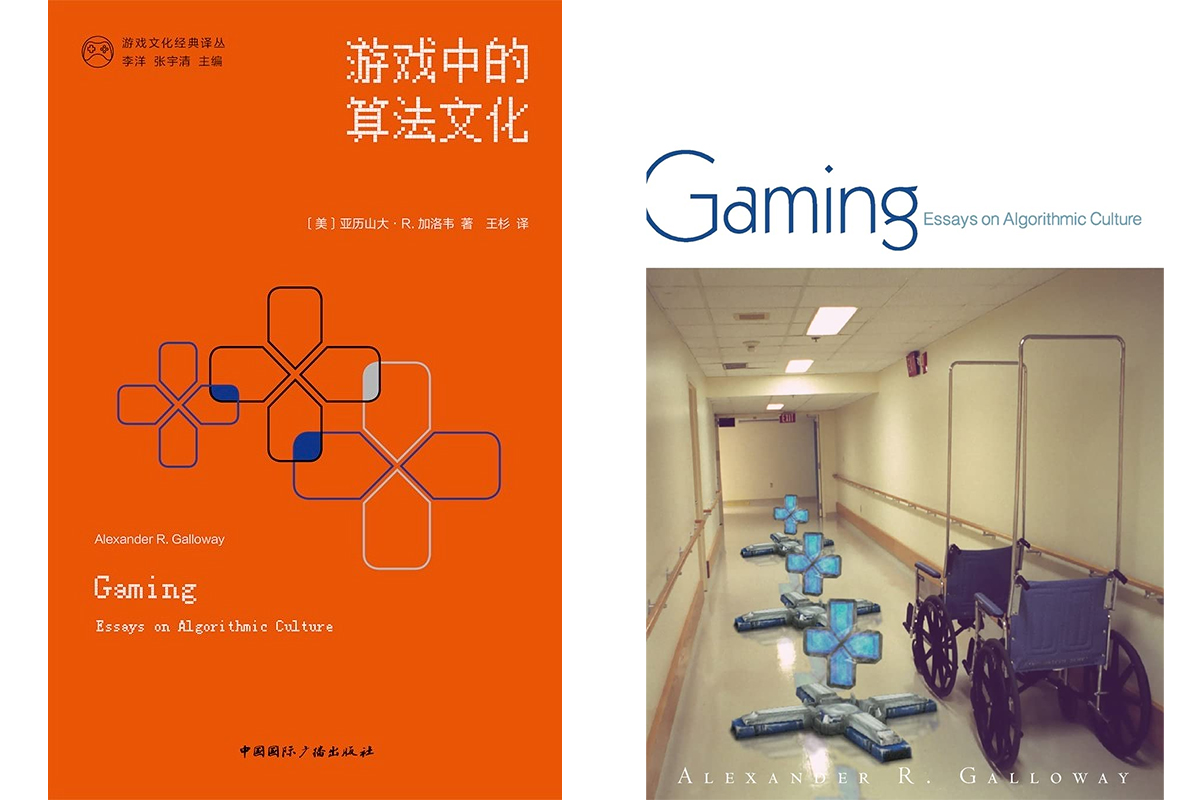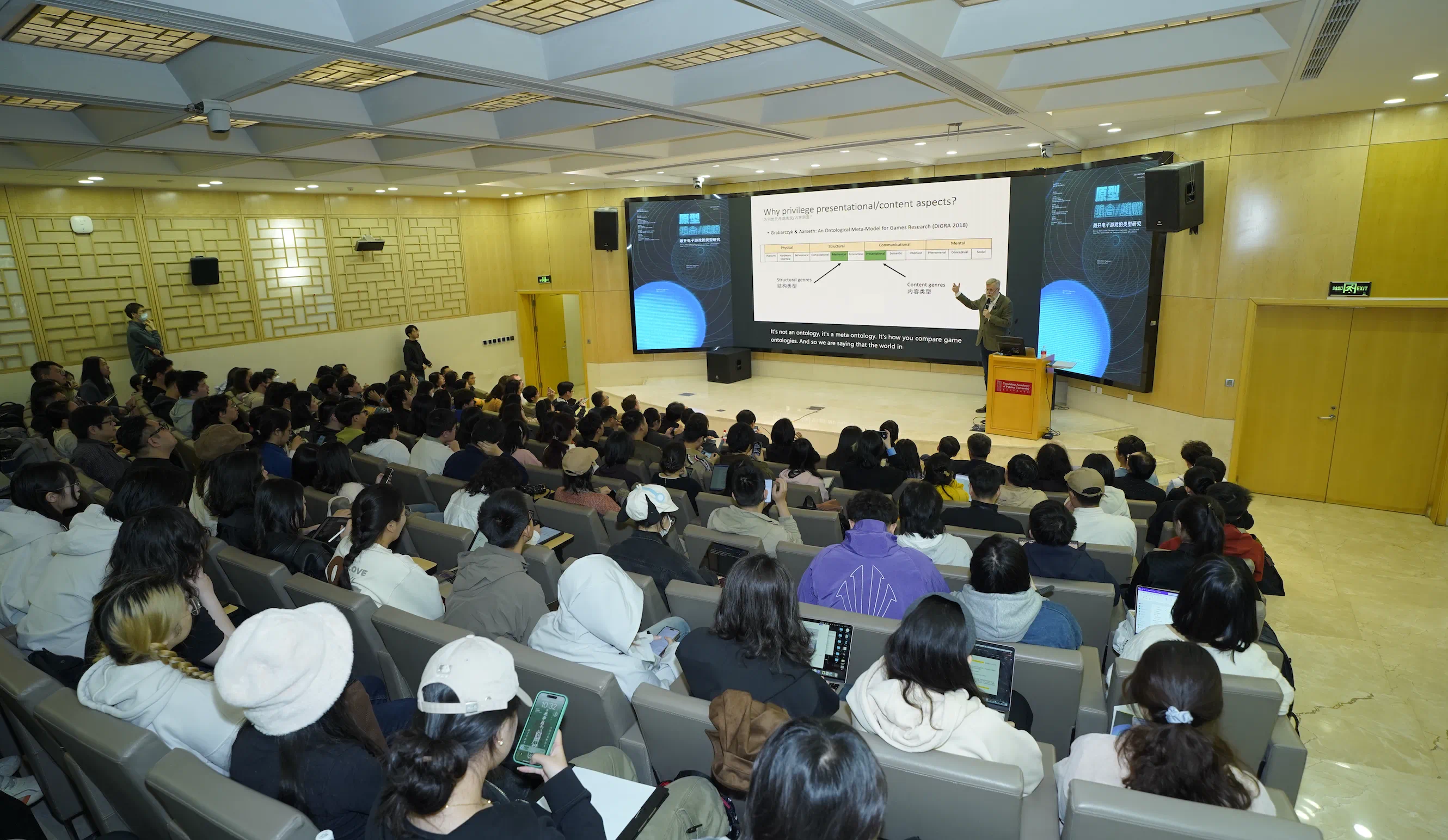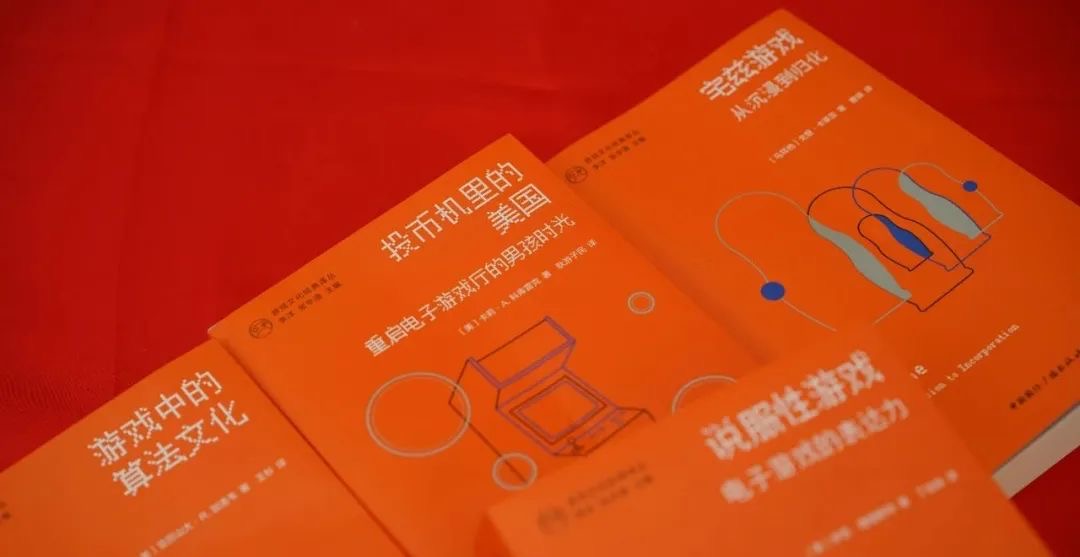Recently, the first batch of the Game Culture Classics Translation Series was released at the Second Boya International Academic Conference on Video Games at Peking University. Among the works is Gaming: Essays on Algorithmic Culture, independently translated by Wang Shan, Assistant Research Fellow at the School of Journalism and Communication, NKU.

Chinese and English covers of Gaming: Essays on Algorithmic Culture
The Game Culture Classics Translation Series is the first book series in China on video game studies edited from the perspectives of the humanities and art theory. Co-edited by Professor Li Yang from the School of Arts, Peking University, and Zhang Yuqing, President of the China International Radio Press, the series explores core areas of the humanities such as philosophy, history, and art history. It seeks to transcend the limitations of understanding video games and their cultural emergence solely through technical and mechanical lenses, responding both to the development of the gaming industry and to academia's growing interest in video game culture.
Gaming: Essays on Algorithmic Culture is a representative work by renowned American scholar Alexander R. Galloway, who has made numerous influential contributions to the fields of digital media theory and game studies over the past two decades. Galloway is widely recognized as one of the most original and influential figures in these areas.
Since its publication in 2006, Gaming: Essays on Algorithmic Culture has become a classic work in the field of video game studies, continually discussed, cited, and further developed in academic circles. Upholding a critical approach to technological culture, Galloway reveals the often-overlooked algorithmic dimension of video games, arguing that they use rules and code to shape and regulate player behavior. By introducing the concept of countergaming, he underscores his critical stance toward technology and culture. Notions such as first-person games, realistic games, and countergaming not only fill long-standing theoretical gaps in game studies but also represent a continuation of the 1970s hacker culture.
Wang Shan, Assistant Research Fellow at the School of Journalism and Communication, NKU, graduated from the School of Arts, Peking University. The doctoral dissertation, Political Correctness and Formation of American Genre Films (1910–1932), was awarded the Outstanding Doctoral Dissertation of Peking University (2023). She is the principal investigator of the Later-stage Funding and Outstanding Doctoral Dissertation Publication Project of the National Social Science Fund of China (2024). Wang has published numerous papers in journals such as Film Art, Contemporary Cinema, and Journal of Beijing Film Academy. Her research focuses on film history, media theory, and film theory. She is the chief editor of the translated volume Mnemonic Circuits of Images and has published nearly 300,000 words of academic translations.

At the Boya International Academic Conference on Video Games
Other translations published in this series include Coin-Operated Americans: Rebooting Boyhood at the Video Game Arcade, In-Game: From Immersion to Incorporation, and Persuasive Game: The Expressive Power of Videogames, all of which are representative works in the field of Western video game studies.

The first translations published in the series


